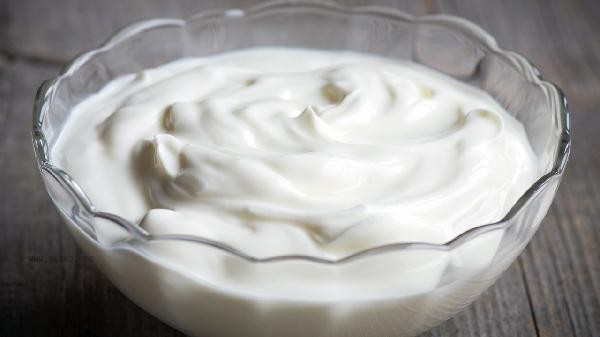Yogurt can be paired with fruits such as strawberries, bananas, blueberries, kiwis, mangoes, etc. Combining yogurt with fruits can not only enhance taste, but also increase nutritional value, but it should be noted that some fruits may affect digestion or cause allergies.

1. Strawberries
Strawberries are rich in vitamin C and dietary fiber, and when paired with yogurt, they can enhance their antioxidant properties. The organic acids in strawberries can promote the absorption of calcium in yogurt, but those with excessive stomach acid need to control their consumption to avoid stimulating the gastrointestinal mucosa. It is recommended to choose fresh strawberries, clean them thoroughly, cut them into pieces, and add them to yogurt.
2. Bananas
Bananas are rich in potassium and natural sugars, which can be quickly replenished with energy when paired with yogurt. The dense texture of bananas can neutralize the sour taste of yogurt and is suitable for consumption after exercise. However, diabetes patients should pay attention to controlling their intake to avoid excessive fluctuations in blood sugar. Bananas with moderate maturity are more suitable for mixing with yogurt.
3. Blueberries
Blueberries contain a large amount of anthocyanins, which can form protective complexes when combined with proteins in yogurt. This combination helps maintain visual health, but blueberry skin may contain pesticide residues. It is recommended to soak in light salt water before consumption. Frozen blueberries can also be used, but they need to be thawed to room temperature to avoid gastrointestinal irritation.

4. Kiwi
The protease in kiwifruit can break down some of the proteins in yogurt, making the taste smoother. This combination has extremely high vitamin C content, but kiwifruit has strong acidity, so patients with gastric ulcers should consume it with caution. It is recommended to mix kiwi slices with yogurt one hour before consumption to allow the enzymes to fully function.
5. Mango
The beta carotene in mango is more easily absorbed by the human body when combined with the fat in yogurt. This tropical fruit can add a unique flavor to yogurt, but mango is a highly allergenic fruit, and people with allergies should try a small amount when consuming it for the first time. When choosing mature mangoes, pay attention to whether the skin is intact and free of black spots. When pairing yogurt with fruits, it is recommended to choose fresh fruits of the season and control the single intake within 200 grams. For those with weak gastrointestinal function, fruits can be soaked in warm water or slightly heated first. Special groups such as diabetes patients should pay attention to the sugar content of fruits, and pregnant women should avoid eating tropical fruits that may cause uterine contractions. Keep the ingredients and containers clean and hygienic during production, and consume them as soon as possible after mixing to ensure the best taste and nutrition. If discomfort symptoms such as bloating and rash occur, stop eating immediately and consult a doctor.









Comments (0)
Leave a Comment
No comments yet
Be the first to share your thoughts!